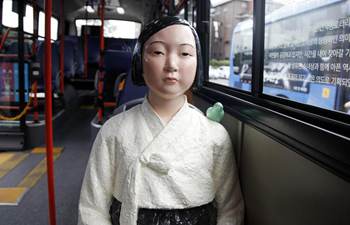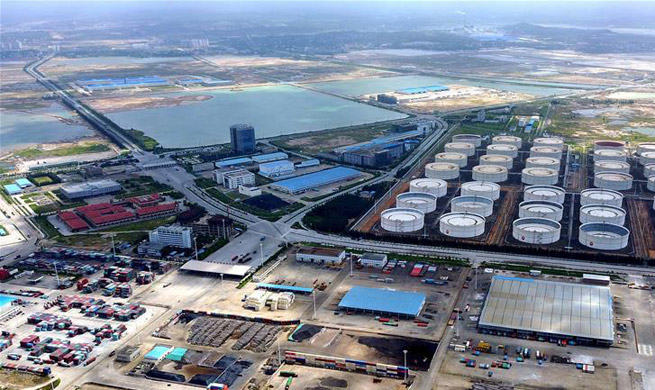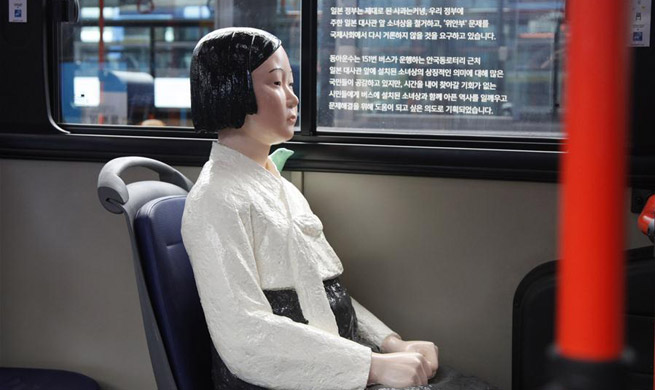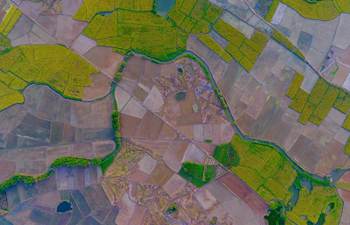BANDAR SERI BEGAWAN, Aug. 14 (Xinhua) -- The new financing regulation issued by Brunei's central bank, the Autoriti Monetari Brunei Darussalam (AMBD), is aimed at relaxing control on bank lending, which will promote economic diversification and benefit the local economy, financial analysts told Xinhua on Monday.
The AMBD has said recently that it has reviewed the Total Debt Service Ratio (TDSR) framework, increasing its limit to a maximum of 70 percent.
It said in a statement that effective from Aug. 10, all banks and Perbadanan Tabung Amanah Islam Brunei (TAIB) are allowed to increase the TDSR limit from 60 percent previously.
The TDSR measures the total monthly debt obligations as a proportion of the net monthly income.
Effective on June 8, 2015, the maximum TDSR set by the AMBD was at 60 percent for borrowers with a minimum net monthly income of 1,750 Brunei dollars (1,286 U.S. dollars).
"The new financing policy will provide more flexibility to borrowers and increase some customers' capabilities to get property financing," a AMBD official told Xinhua, who preferred to be anonymous.
"This effort will obviously stimulate local property market and further the process of economic diversification in this oil dependent country, which will be good to the stagnant economy in the end," he added.
Citing the AMBD statement, he explained that the new TDSR amendment is for credit facilities to finance the purchase or construction of houses.
"This amendment is intended to encourage home ownership particularly for borrowers with net monthly income of 1,750 Brunei dollars and above, and to have wider options in making home purchases," he said.
The TDSR limits how much individuals can borrow relative to their income to ensure their monthly loan repayments are at a manageable level and consequently have sufficient remaining income to cover for their daily living expenses.
According to the AMBD, the implementation of the TDSR aims to protect individuals from falling into a debt trap.
For this reason, borrowers with net monthly income below 1,750 Brunei dollars are subjected to the respective financial institution's internal policy on the TDSR or minimum take home pay requirement.
"We banks put risk control at the first place. The new amendment made by AMBD gives only a guideline, which means financial institutions can make their own policies accordingly," a local bank executive working for a foreign bank told Xinhua.
"Under the current economic circumstances, the lowered oil price has clearly weakened the income level of Bruneians. So I don't think we will significantly raise the level of lending, but stick to prudent operation as we did in the past few years," she said.
Her views seemed to have been confirmed by AMBD statistics.
In terms of ratio of "bad loans" to total loans in the household sector, as indicated by the Non-Performing Loan Ratio, it has declined from 2.3 percent in December 2014 to 1.9 percent in June 2017, suggesting better and more disciplined debt management by households as well as prudent granting of loans by banks and finance companies.
In fact, the most recent effort to encourage lending is not the first of its kind. In October 2015, the AMBD increased the flexibility of the TDSR policy, particularly for business owners, to include variable income such as rental and other business income as part of their Gross Monthly Income subject to certain conditions.
Apart from that, credit cards secured by fixed deposits were also excluded from the TDSR computation.
"AMBD's new policy benefits only the financing of the purchase or construction of properties, while other limits remains," local banking executives said.
According to local laws, foreigners, even permanent residents in Brunei are not allowed to buy land but only strata titles.
In order to significantly stimulate the domestic property market through increased bank lending, which can contribute to economic growth, Brunei might need more comprehensive and bolder moves, financial analysts said. (1 Brunei dollar = 0.735 U.S. dollar)

















